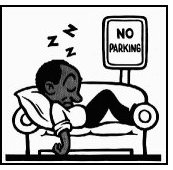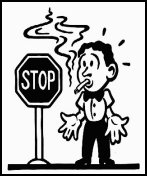![]()
Advice for caring for a healthy heart.
| Controlling Your Risk Factors for a First Heart Attack |
| There's a lot that most people can do to help prevent first heart attacks.
Scientific and population studies show that certain traits and lifestyle habits increase
the risk of a heart attack. These danger signs are called "risk
factors." The truth is, you can avoid many causes of heart attacks if you want
to. It starts by knowing the facts. The Basic Cause of Heart Disease |
What Can Put You At Risk? |
Age/Sex The older you get, the more your risk of a heart attack increases. Men over 45 and women over 55 are at much greater risk. As you get older, it's recommended that you have regular check-ups. Family History of Heart Attack If your brothers, sisters, parents, or grandparents have had early heart attacks, you may be at risk, too. Most people with a strong family history of heart disease have one or more risk factors. Your family may have a genetic condition that raises blood cholesterol, high blood pressure may run in the family, or you may have picked up bad lifestyle habits. High Blood Cholesterol A high level of cholesterol in the blood accelerates the development of atherosclerosis. Studies show that the risk of heart attack for a person with a blood cholesterol level of 240 mg/dL or more is twice that of a person whose cholesterol is 200 mg/dL. A diet high in saturated fat and cholesterol is a main cause of high blood cholesterol. In some people, being overweight can also raise the level. Exercise, as well as low-saturated-fat, low-cholesterol dietary changes, will often help control cholesterol. Diet and exercise are important first steps. But if you have other risk factors besides high cholesterol- and diet and exercise haven't worked- your doctor may also prescribe medication. Low HDL Cholesterol (Good Cholesterol) You may have heard the terms LDL and HDL in reference to cholesterol. LDL is often called "bad cholesterol" because it's most likely to contribute to the atherosclerosis process. HDL has been called "good cholesterol" because doctors think it tends to carry excess cholesterol back to the liver where it's removed from the body. A low level of "good cholesterol" is also considered a risk factor. High Blood Pressure Blood pressure is the force of blood against artery walls. A major risk factor for heart disease, blood pressure is recorded as two numbers. The higher number-systolic pressure- should be less than 140 mmHg. The lower number-diastolic pressure- should be under 90 mmHg. If either number (or both) is higher for two or more blood pressure measurements, then you have high blood pressure. High blood pressure is often the result of age, race, obesity, alcohol and a diet high in salt. It's important to get your blood pressure checked regularly, especially as you get older. Physical Inactivity  An inactive
lifestyle contributes to higher blood cholesterol leves
and obesity. The American Heart Association recommends 30 to 60 minutes of aerobic
exercise most days of the week to decrease the risk of a heart attack. Before
beginning an exercise program, consult with your doctor. An inactive
lifestyle contributes to higher blood cholesterol leves
and obesity. The American Heart Association recommends 30 to 60 minutes of aerobic
exercise most days of the week to decrease the risk of a heart attack. Before
beginning an exercise program, consult with your doctor.
Obesity A person is obese when he or she is more than 30 percent overweight. Being this heavy increases the risk of heart disease and, in some cases, has an extremely bad effect on other risk factors. If you can't lose weight on your own, talk with your doctor, a registered dietition, or a nutritionist licensed or certified by the state. Cigarette / Tobacco Smoke  Scientists believe smoking promotes heart disease in a variety of ways. It speeds up the development of atherosclerosis, reduces the level of HDL cholesterol, and may also encourage platelets to clump together which can lodge in an artery. If you smoke, QUIT. As soon as you stop, your risk of heart disease begins to drop. Diabetes Diabetes is the inability of the body to produce or respond to insulin properly. Insulin allows the body to use glucose. Diabetes can damage the cardiovascular system by producing abnormalities in lipoproteins that may speed up atherosclerosis. It also affects cholesterol levels. People with diabetes can help control it by working with their doctor to change eating habits, control weight, and get regular exercise. Stress Many scientists have noted a relationship between heart attack and a person's stress. A person may overheat or smoke continually from nervous tension, which can contribute to heart attack risk. The exact effects of stress on the heart aren't fully known, and more research is needed. Alcohol Alcohol, in moderation, has been cited as having a protective effect against heart attack. But too much alcohol can raise blood pressure, promote weight gain, and even produce heartbeat irregularity. If you don't drink, don't start. And if you do drink, do so in moderation. You should quit drinking if you notice even one negative effect. When you talk to your doctor, you may wish to discuss your alcohol intake. |
In the last 20 years, millions of Americans have learned about heart attack risk factors. They've sought medical advice and changed their lifestyles as a result. These efforts have played a significant role in the prevention of heart attacks. When you take responsibility and work to control your risk factors, you deal heart disease a serious blow. And when you make changes to reduce the risk, then heart disease doesn't have much of a chance. Your doctor can play an important part in the process. |
|
|
Vijay M. Haryani, M.D., FACC
455 West Court Street, Suite 302, Kankakee, Illinois 60901
(Phone): 815-936-3240 * (FAX): 815-936-3243
(Email): info@haryani.com
 blood supply can't reach a part of the heart muscle, that part
begins to die. This is called a heart attack. The risk factors for heart attacks
are conditions and habits that tend to speed the development of atherosclerosis.
It's important to identify them, and eliminate or modify as much as you
can. They can slow the development of atherosclerosis and help prevent a heart attack.
Understanding your risk is one major step in heart attack prevention. But
it's important to do something about it, too. Regular medical checkups with your doctor
can help. Your doctor can make sure your medical risk factors are treated and
can help you in developing a heart-healthy lifestyle.
blood supply can't reach a part of the heart muscle, that part
begins to die. This is called a heart attack. The risk factors for heart attacks
are conditions and habits that tend to speed the development of atherosclerosis.
It's important to identify them, and eliminate or modify as much as you
can. They can slow the development of atherosclerosis and help prevent a heart attack.
Understanding your risk is one major step in heart attack prevention. But
it's important to do something about it, too. Regular medical checkups with your doctor
can help. Your doctor can make sure your medical risk factors are treated and
can help you in developing a heart-healthy lifestyle.